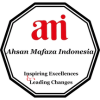THE INFLUENCE OF DIGITAL WORK CULTURE ON THE IMPROVEMENT LEARNING QUALITY AT SMPN 2 BANGGAI SELATAN
Keywords:
digital work culture, learning quality, educational technology, teacher adaptationAbstract
This study examines the influence of digital work culture on improving the quality of learning at SMPN 2 Banggai Selatan, Central Sulawesi, Indonesia. This study uses a quantitative approach with data collection through questionnaires distributed to 15 teachers and 90 students using purposive sampling for teachers and stratified random sampling for students. The research instrument uses a 5-point Likert scale questionnaire that has been tested for validity and reliability. Digital work culture acts as an independent variable that includes technology utilization, digital literacy, and adaptation to change, while learning quality functions as a dependent variable that includes teaching methods, learning outcomes, and student engagement. Data analysis uses descriptive statistics and multiple linear regression analysis using SPSS version 25. The results of the study indicate that digital work culture has a positive and significant effect on improving the quality of learning, with a regression equation of Y = 0.823 + 0.452X₁ + 0.265X₂ + 0.328X₃. The coefficient of determination (R²) shows that digital work culture contributes 52.3% to improving the quality of learning, while the remaining 47.7% is influenced by other factors. Technology utilization emerged as the most dominant dimension with the highest regression coefficient (0.452), followed by adaptation to change (0.328) and digital literacy (0.265). These findings indicate that developing a comprehensive digital work culture strategy is essential to improving the quality of education in non-metropolitan areas, especially in outlying areas that face infrastructure and resource constraints.
Downloads
Downloads
Published
Issue
Section
License
Copyright (c) 2025 International Journal of Education Management, Leadership and Organisational Studies

This work is licensed under a Creative Commons Attribution-NonCommercial-ShareAlike 4.0 International License.




